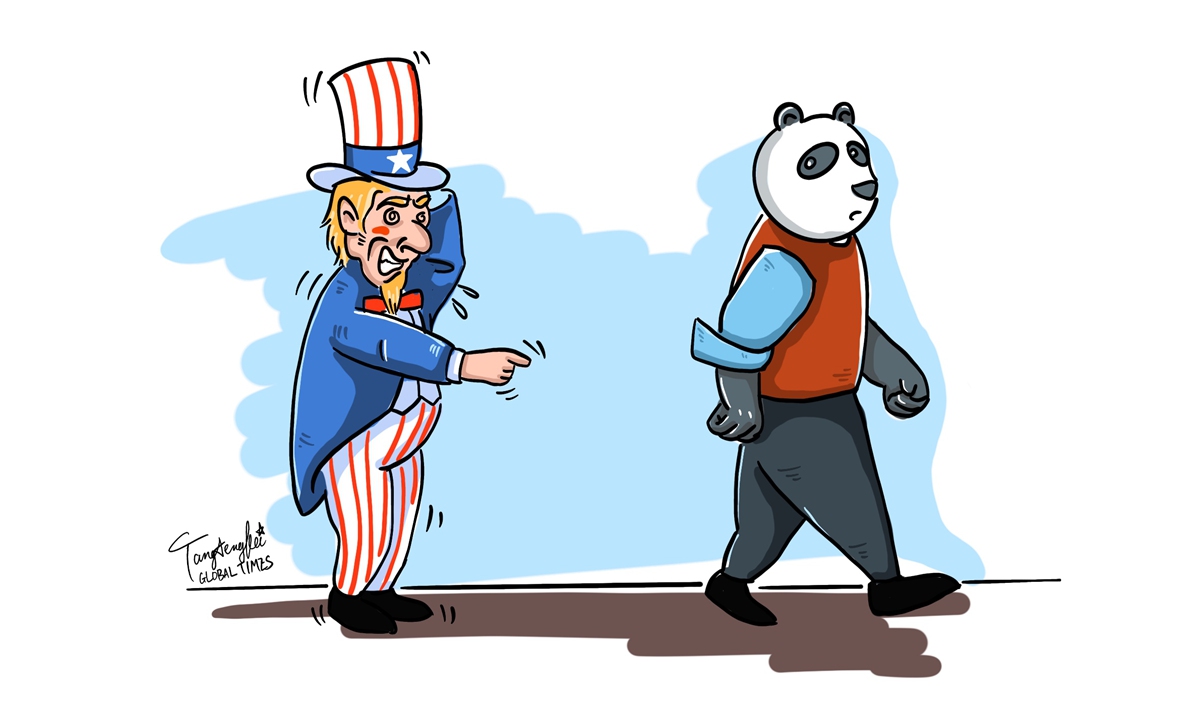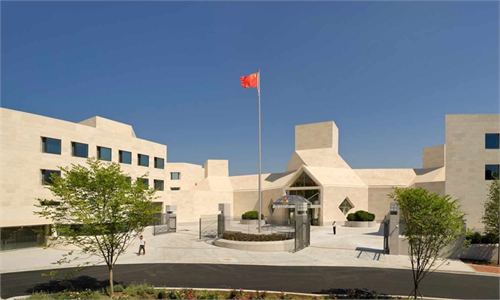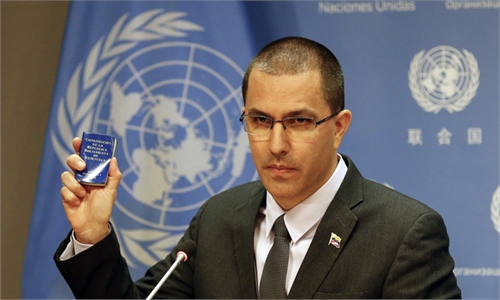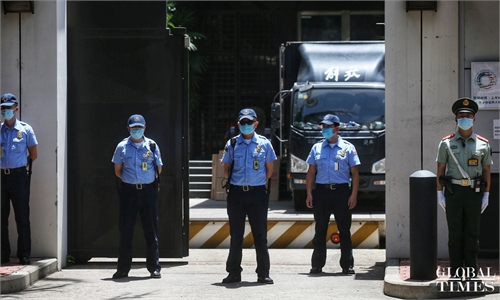COMMENTS / COLUMNISTS
China has more important things to do than engage in a power rivalry with the US

Illustration: Tang Tengfei/GT
As the US presidential election in November draws near, the incumbent Trump government has opted to exacerbate economic, diplomatic and political attacks on China - to deflect the administration's disastrously failing response to the COVID-19 pandemic which has claimed more than 140,000 American lives and sent its economy into free fall.To stoke up animosity toward China and lure American hardcore rightist voters to support Trump's reelection bid, the White House moved to undermine the two countries' diplomatic relations by ordering China's consulate in Houston, Texas, to be shut down. In a tit-for-tat move, Beijing then closed the US' consulate in Chengdu, Sichuan.
Determined to find a scapegoat for almost every woe in the country, the current US government will, undoubtedly, continue assaulting and stigmatizing China in the coming three months prior to the casting of votes at the ballots on November 3.
Correspondingly, Chinese people and the policy-makers in Beijing should keep sober and calm, and be well prepared for the worst provocations from Washington.
From launching the relentless trade war against China in late 2018, to pursuing technology "decoupling" by blacklisting Huawei, ZTE and dozens of Chinese tech startups, to the present diplomatic skirmish, the current US government could become even more erratic and do even more crazy things -- for its sole purpose of staying another 4 years in the White House.
Quite a few geopolitical world affairs analysts see the rivalry between the US and China as becoming a paradigm of international relations. However, this perception is only partially correct. China's leadership, focusing on building a shared future for humankind, does not believe in a bi-polar domination of world order.
Chinese people believe that, in addition to the US and China, other major economies and powers like the EU and Russia, as well as Japan, Brazil and the UK, should all play prominent roles in contributing to global governance.
Unlike the US government, China has trust in fair, transparent and non-discriminative principles for business competition. Chinese manufactured household appliances are welcomed by customers in other countries because they are high quality and inexpensive. We like to buy German and Japanese-made cars, French-made bags and wines, South Korean-made cosmetics, because they are, too, of high quality.
Chinese people are loath to see the Trump administration make up unsubstantiated claims to slander and defame companies like Huawei - just because the Chinese company made ground-breaking 5G innovations, while no American company could do the same.
In sharp contrast with the US government, China is a strong proponent and supporter of multilateralism, trade and economic globalization, and the international order led by the United Nations. Naturally, we are bewildered by and highly disapproving of the destructive role the Trump administration has displayed in the past four years.
From scrapping the iconic Paris climate agreement, the anti-intermediate missile treaty and the six-partite nuclear agreement on Iran, to exiting the United Nations Educational, Scientific and Cultural Organization, the United Nations Human Rights Council and the World Health Organization, the Trump administration is destroying international order, as it deems that the system no longer fits the US' national interests.
The world has hardly witnessed a US government like the current one, trampling on global pacts and organizations so brazenly, which places the common good of our planet in grave peril. For example, some politicians in Washington believed the Paris climate agreement would work to hamper US' excavation of fossil fuels such as oil and coal, and ditched it accordingly.
But the US, being the world's largest economy and superpower, should have spearheaded the global efforts to reduce carbon emissions and contain global warming - to make our living Earth a greener and more livable planet, and prevent many low-altitude seaside places from Amsterdam, to the Maldives and Singapore from being buried under water.
Some politicians in Washington seem to accept the "Thucydides Trap" hypothetical theory and they take pride in the US' successful containment of the UK, the former Soviet Union, Japan and the EU to keep its superpower position. But China is different, with 1.4 billion hard-working people backed up by a huge market and innovative power of all the modern technologies.
Furthermore, China has a special advantage that the US envies -- the world's second largest economy, steered by a strong central government, has tamed all formidable historic challenges - be it the 1997 Asian financial crisis, the 2008 American subprime debt-induced global financial crisis, and now, the COVID-19 public health crisis.
The author is an editor with the Global Times. bizopinion@globaltimes.com.cn



